Developing math skills Normal Math Worksheets for Ages 4-7
6 filtered results
-
From - To
"Developing Math Skills Normal Math Worksheets for Ages 4-7" offers engaging and educational activities designed to enhance young learners' numeric proficiency. Our specially curated worksheets cover essential math concepts like counting, addition, subtraction, and number recognition. Ideal for children aged 4-7, these resources make learning fun with vibrant visuals and interactive exercises that inspire a love for math. Built to align with early education standards, these worksheets not only bolster foundational skills but also boost confidence, setting the stage for future academic success. Transform math practice into a delightful adventure with our expertly crafted worksheets.
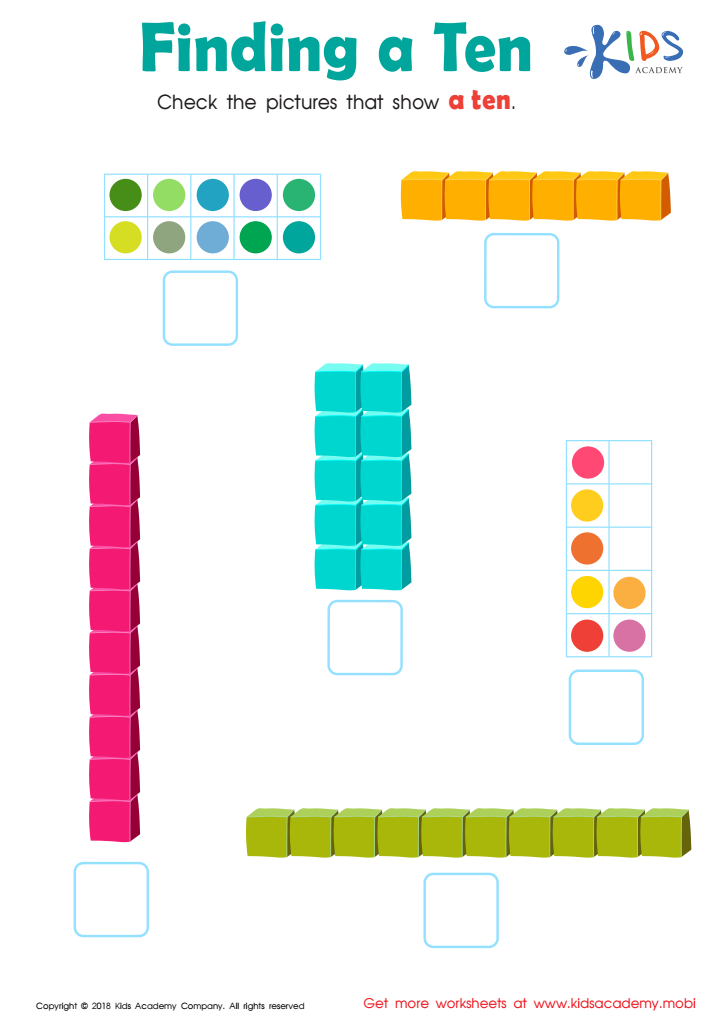

Finding a Ten Worksheet
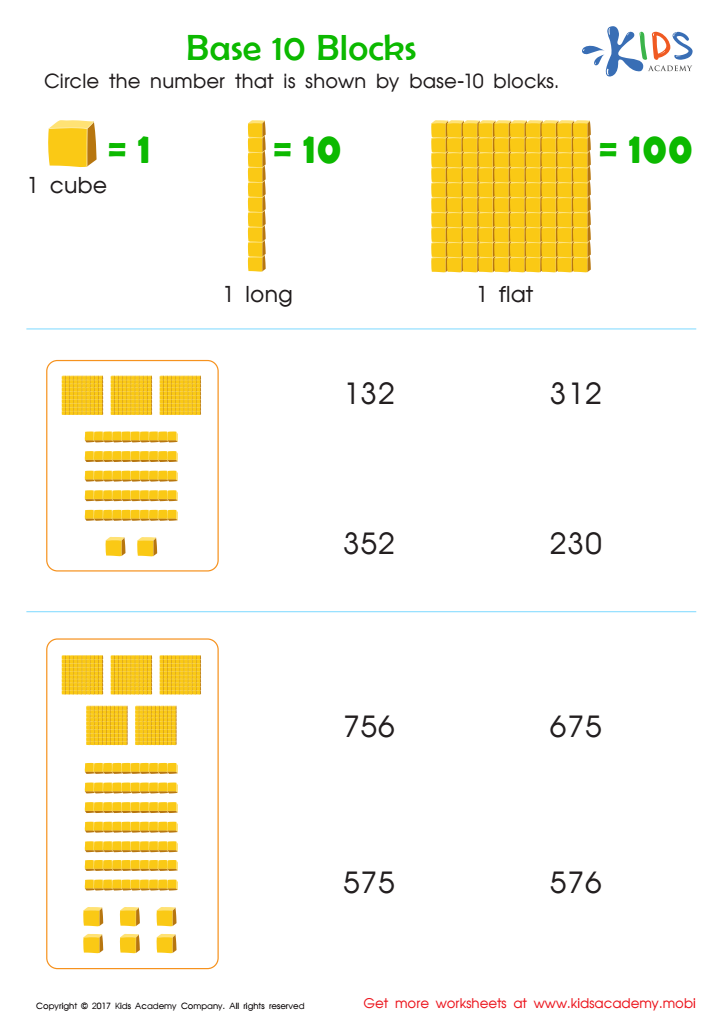

Base Ten Blocks Worksheet
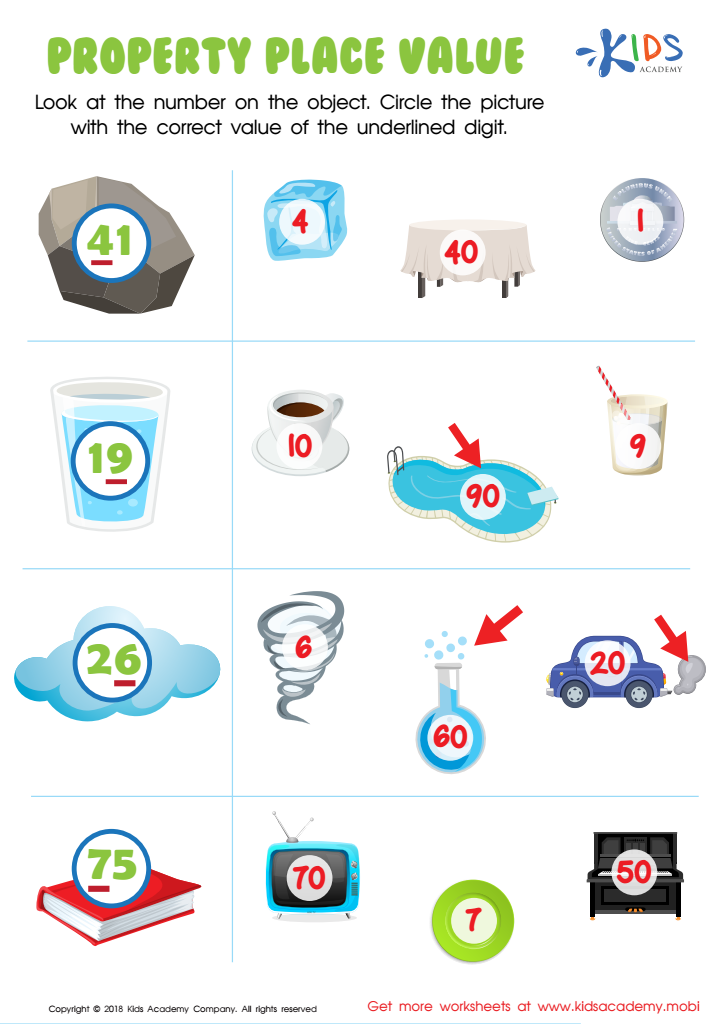

Property Place Value Worksheet
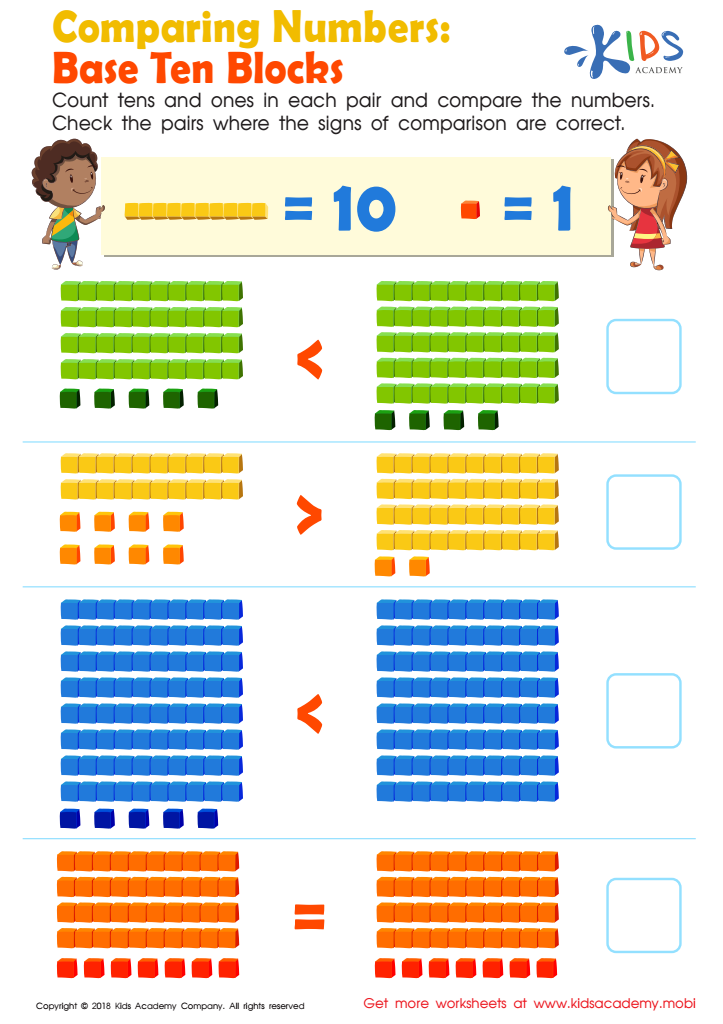

Comparing Numbers: Base Ten Blocks Worksheet
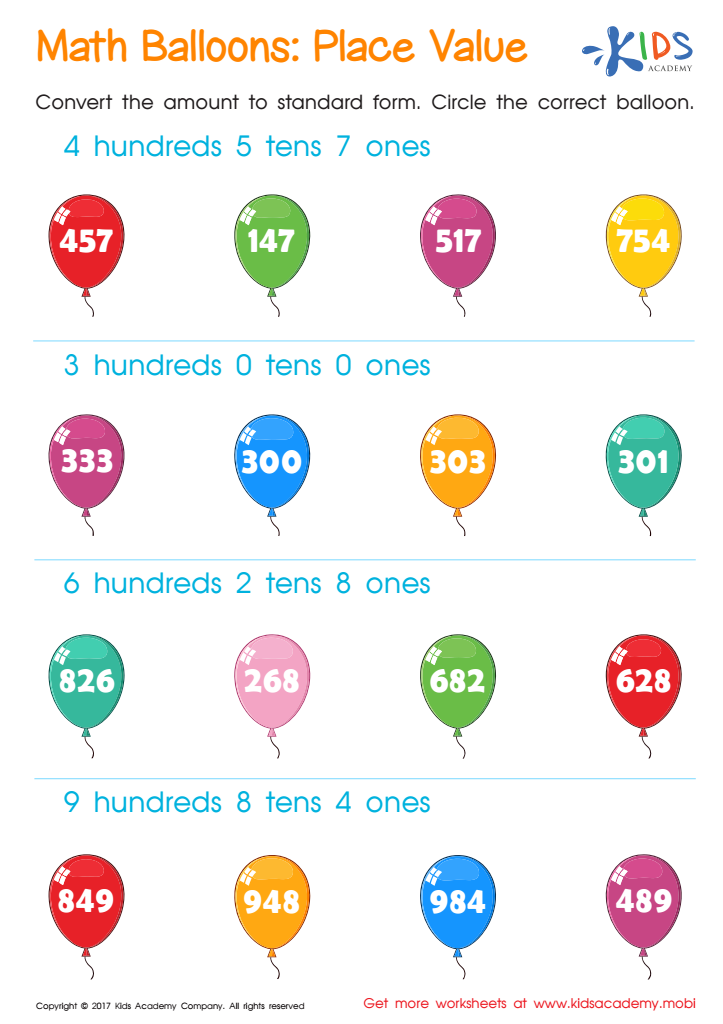

Place Value Printable Worksheet
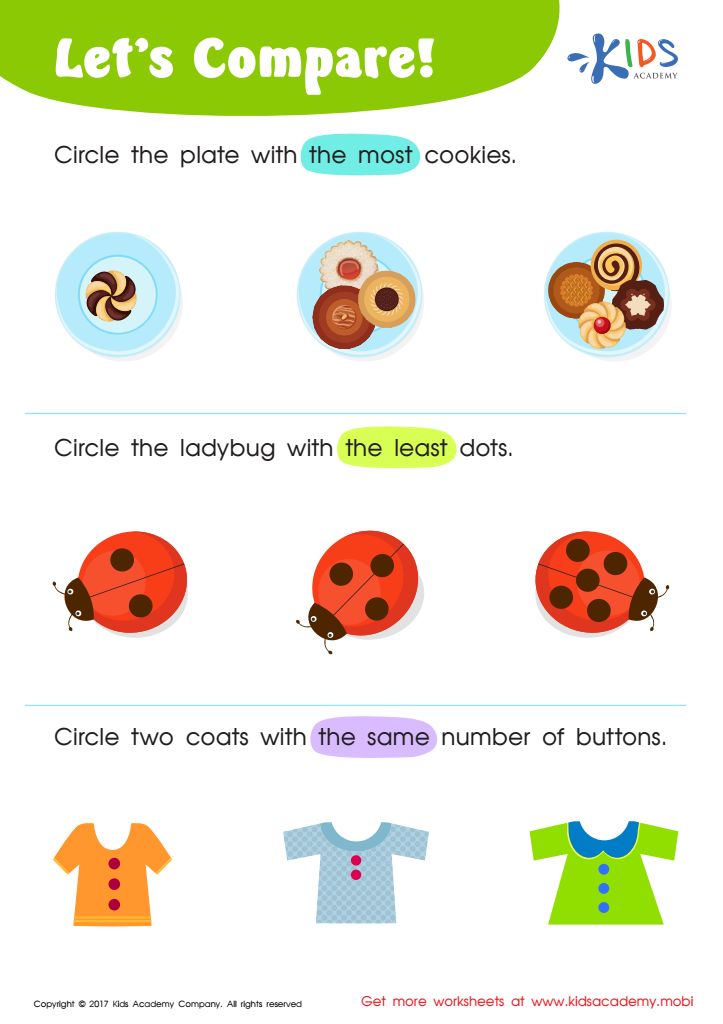

Matching: Classifying Toys by Size Worksheet
Developing math skills in children aged 4-7 is crucial for several reasons. At this age, children's brains are highly receptive to learning, making it an ideal time to build foundational skills that will support more advanced mathematical understanding in later years. Encouraging early math skills fosters problem-solving and analytical thinking abilities, which are not only essential for mathematics but transferable to other subjects and everyday life.
Early math skills, such as counting, recognizing numbers, understanding basic addition and subtraction, and identifying shapes, lay the groundwork for future academic success. Children who develop strong math foundations tend to perform better in school overall and are more likely to enjoy learning. Additionally, these skills are integral to various everyday activities, from telling time to managing money, making them essential for practical life skills.
From a socio-emotional perspective, mastering early math concepts builds confidence and fosters a positive attitude toward learning. When children see their progress and achievements in math, it boosts their self-esteem and encourages a growth mindset.
For parents and teachers, investing time and resources in developing these skills can unlock a child’s potential, providing lifelong benefits that extend well beyond the classroom. Cultivating an early interest in math generates curiosity and opens doors to many future career opportunities in STEM fields.
 Assign to My Students
Assign to My Students





















